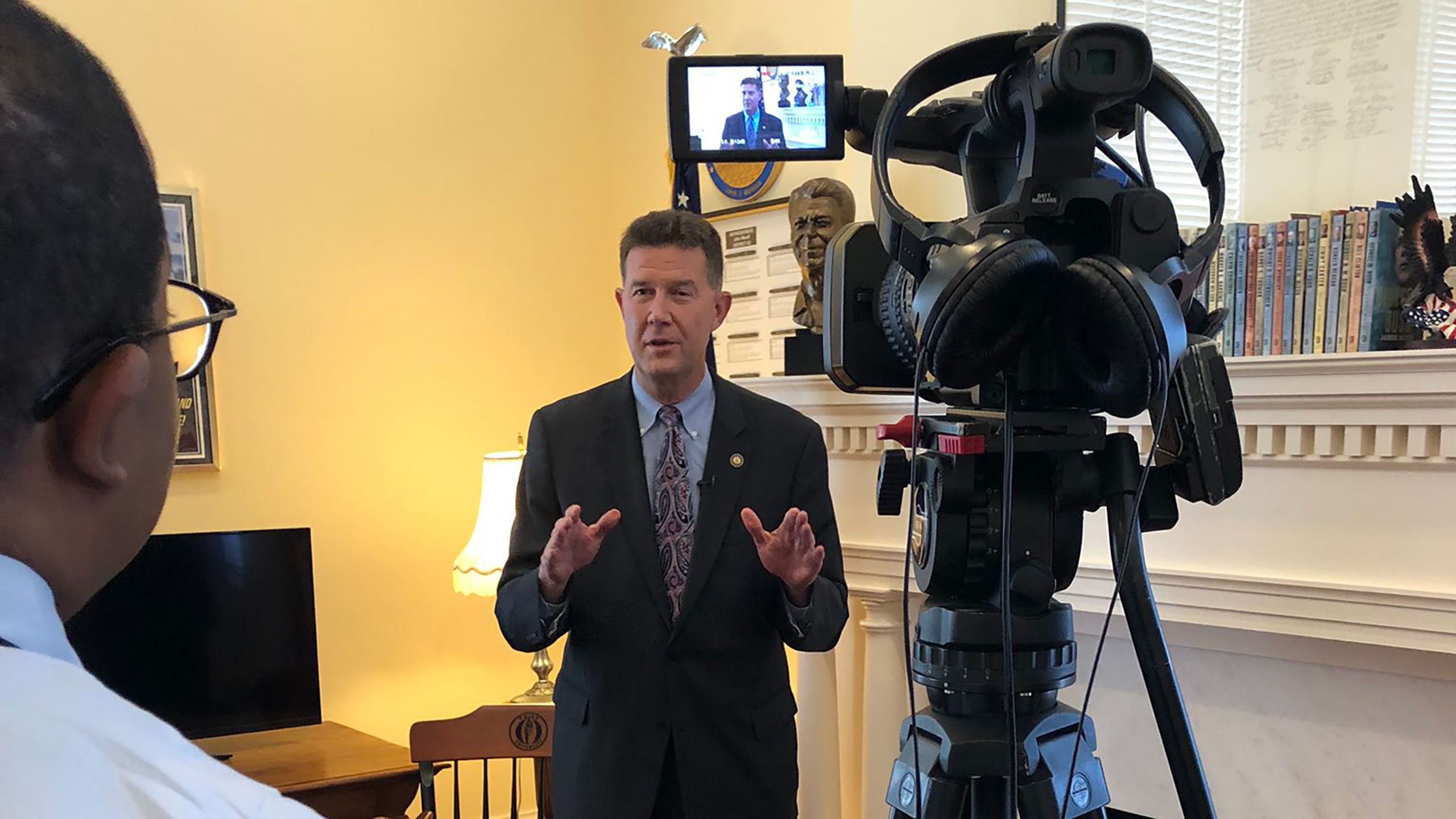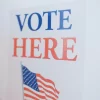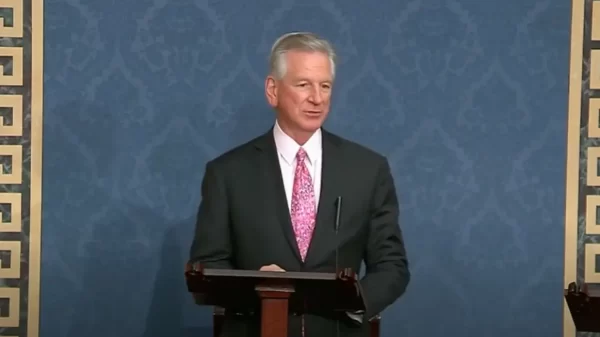|
Getting your Trinity Audio player ready...
|
Alabama Secretary of State John Merrill will appeal a federal court ruling requiring him to hand over disqualified voter lists – which are public records, according to the National Voter Registration Act – to Greater Birmingham Ministries.
Federal Judge Myron Thompson also chastised Merrill, who is represented by the Alabama Attorney General’s Office, for his “dilatory” behavior and unfair request in requesting a change to setting the fee schedule for production of the documents in question.
Following Thompson’s order on Oct. 4, which required Merrill’s office to provide GBM with copies – electronic copies, if available – of disqualified voters who had been removed from the voting rolls, Merrill’s office told APR that it believed an appeal would be filed but that the AG’s office was handling the matter. The AG’s office declined comment at the time.
But last Wednesday, more than three weeks after Thompson’s ruling, a request to expedite the setting of fees was filed, and for the first time, Merrill indicated to the court that an appeal was planned. Thompson, in his order, told the parties to settle the fees between them and to bring it to the court if a reasonable compromise on fees couldn’t be reached.
In Wednesday’s filing, Merrill asked to skip the negotiations and simply have the court set the fees. He also asked that it be done by Nov. 2 – a week later – and provided no time for GBM attorneys to have input on the matter. The filing said that having the court set the fees would make it easier to file the appeal with the Court of Appeals for the 11th Circuit.
In denying the request, Thompson made clear that he was not impressed with the behavior of Merrill and the AG’s office.
“Secretary Merrill waited more than three weeks after the court issued its holding–which set out a clear procedure to determine the fees for providing records to GBM–before requesting a deviation from that procedure,” Thompson wrote. “He is thus not well poised to request an expedited ruling on that deviation now (much less on a timeline that allows just one week to conduct briefing, hold any hearing or conference, and issue an opinion).”
GBM filed suit against Merrill when he denied the group, which conducts various kinds of voter outreach and registration, including focusing on restoring the voting rights of former felons, access to voter lists the secretary of state’s office maintains. Specifically, GBM requested copies of lists showing voters who have been expunged from the rolls, so the organization could review those names and work to either correct mistakes or get newly eligible voters registered.
Merrill flatly refused to produce the specific lists, claiming that even though those lists were maintained by his office that the law didn’t require their disclosure. Thompson disagreed.
In a blistering opinion, he questioned Merrill’s motivations in failing to disclose the lists in the first place, and also in establishing cumbersome processes for viewing the lists. After being sued, Merrill created a process by which a person could view a list – a process that included visiting the secretary of state’s office, being monitored by an employee and allowed to take only “limited” notes. All of that instead of simply emailing the requested files to GBM.
“(The facts of the case) raise concerns as to Secretary Merrill’s motivations,” Thompson wrote in a footnote in his Oct. 4 opinion. “The court is hard-pressed to furnish a reason why he would refrain from sending the records to GBM in digital form except to frustrate the aims of the public-inspection provision by making it more difficult and costly for GBM to access the records to which it is entitled. Use of these alternative methods would further delay provision of the records GBM seeks.”
Thompson also noted that the National Voter Registration Act specifically made the voter lists and all subsets public records subject to disclosure laws. The purpose of the law is to assist in voter registration efforts.




















































